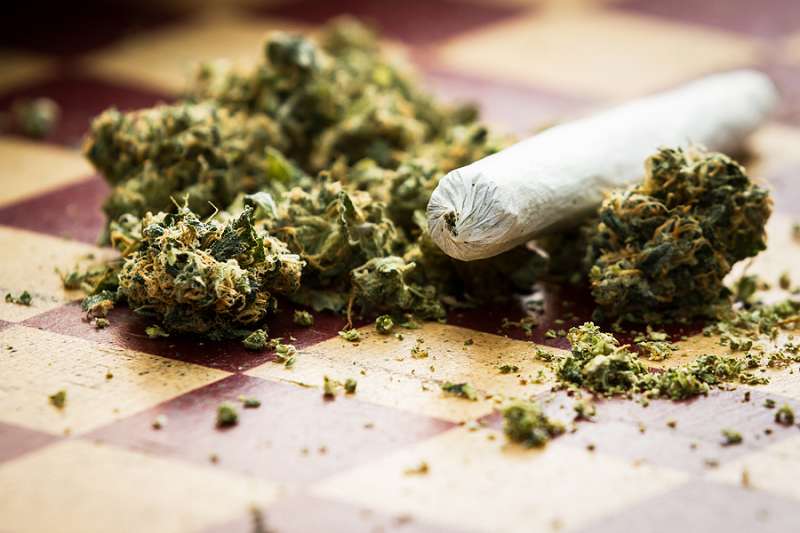Citing “rampant” drug use in modern society and a commitment to the common good, the six Catholic bishops of Illinois are speaking out against the the state’s efforts to legalize recreational marijuana.
“Proponents of legalization say marijuana is not addictive, yet peer-reviewed research concludes that it is,” the bishops wrote in a Feb. 4 joint statement released by the Catholic Conference of Illinois.
“Proponents also say that most people who use marijuana will not move on to harder drugs, yet other studies note that most people who are addicted to other drugs started with alcohol and marijuana,” they wrote.
The push to legalize marijuana for recreational use in Illinois is being led by State Sen. Heather Steans and State Rep. Kelly Cassidy, both Chicago democrats, who said Jan. 29 that they hope to introduce a formal bill to the legislature soon.
Medical marijuana has been legal in Illinois since 2013. Ten states and the District of Columbia have so far legalized recreational use of marijuana, though its use remains illegal under federal law.
The state lawmakers’ bill would allow Illinois residents 21 and older to buy and possess up to 30 grams of marijuana; nonresidents would be allowed to buy and possess half that amount, GateHouse Media Illinois reports. The legislation would also expunge the records of citizens harmed by low-level marijuana convictions, the lawmakers say.
Illinois’ bishops acknowledged that marijuana-related convictions have led to racial disparities in jail and prison populations, and many people are “trapped” in the state’s criminal justice system due to marijuana infractions.
“We recognize the truth of that premise, while observing that recent sentencing reforms should soon reverse that trend, since possession of less than 10 grams of marijuana now results in a ticket of up to $200 and no jail time,” the bishops wrote.
Lawmakers have said that the push to legalize marijuana is partly aimed at eradicating the black market for the drug. The bishops warned that a black market could continue to exist to sell marijuana at a lower price, and to underage customers.
Lawmakers hope to tax recreational marijuana use in the state to the tune of $350-750 million.
“As lawmakers consider this issue, it is important to remember they are not only debating legalization of marijuana, but also commercialization of a drug into an industry the state will profit from,” the bishops wrote.
“In seeking the common good, the state should protect its citizens.”
The Chicago Tribune reports that marijuana legalization has the support of Governor J.B. Pritzker and the Democratic-controlled General Assembly, and the measure is expected to pass this spring and take effect by next year.
“We ask lawmakers to say ‘no’ to legalization of marijuana, as Pope Francis explained in 2014 when speaking about marijuana and other recreational drugs,” the bishops concluded.
They quoted the words of the pope: “To say this ‘no,’ one has to say ‘yes’ to life, ‘yes’ to love, ‘yes’ to others, ‘yes’ to education, ‘yes’ to greater job opportunities. If we say ‘yes’ to all these things, there will be no room for illicit drugs, for alcohol abuse, for other forms of addiction.”
Catholic bishops in other states and countries have recently spoken out to oppose the legalization of marijuana.
Canada legalized recreational marijuana nationwide late last year, prompting the Canadian Conference of Catholic Bishops to underline “the ethical problems involved with the recreational use and abuse of this drug” in Oct. 2018.
The Canadian bishops lamented the “growing problems of a society more and more dependent on drugs and alcohol,” and said that businesses and governments who wish to exploit sales of cannabis for commercial interests or tax revenue are “jeopardizing the pursuit of the common good.”
In the state of Colorado, Denver Archbishop Samuel Aquila signed a petition in May 2017 to put an end to April 20th (4/20) rallies in the city’s downtown, which featured widespread public marijuana smoking and trashing of Denver’s Civic Center Park. Organizers of the event are expecting 65,000 people for 2019’s rally.
Traffic deaths, crime, emergency room visits and youth usage of marijuana increased significantly in the first two years following the legalization of recreational pot in Colorado.

